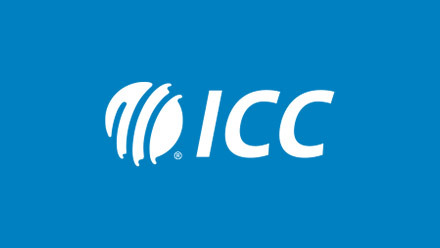Anti-Corruption Violations
According to the International Cricket Council (ICC), Mehar Chhayakar, an Indian cricket player who was formerly stationed in the United Arab Emirates, has been banned from all forms of the game for 14 years as a result of seven violations of the anti-corruption policy.
Mehar Chhayakar banned from all forms of cricket
Chhayakar was found guilty by an ICC Anti-Corruption Tribunal of seeking to manipulate decisions regarding the UAE’s one-day international series in Zimbabwe in 2019 and games in the Global T20 franchise competition in Canada in the same year.
ICC General Manager’s Statment
Alex Marshal, ICC General Manager – Integrity Unit. In a statement went on to say that “We first encountered Mehar Chhayakar through his involvement in organizing a corrupt cricket tournament in Ajman, in 2018. The charges for which he has now received a lengthy ban are further examples of his continuing efforts to corrupt and damage our sport.
“We will be relentless in pursuing and disrupting the people who try to corrupt cricket. With a ban of 14 years, the Tribunal has sent a clear message to anyone intending to corrupt our game.”
Articles that Chhayakar was found to have violated:
- Article 2.1.1 (on two separate occasions) – Fixing or contriving in any way or otherwise influencing improperly or being a party to any agreement or effort to fix or contrive in any way or otherwise influence improperly, the result, progress, conduct or any other aspect of any International Match, including (without limitation) by deliberately underperforming therein.
- Article 2.1.4 (on two separate occasions) – Directly or indirectly soliciting, inducing, enticing, instructing, persuading, encouraging, or intentionally facilitating any Participant to breach any of the foregoing provisions of this Article 2.1.
- Article 2.4.6 (on two separate occasions) – Failing or refusing, without compelling justification, to cooperation with any investigation carried out by the ACU in relation to possible Corrupt Conduct under the Anti-Corruption Code (by any Participant), including (without limitation) failing to provide accurately and completely any information and/or documentation requested by the ACU (whether as part of a formal Demand pursuant to Article 4.3 or otherwise) as part of such investigation.
- Article 2.4.7 – Obstructing or delaying any investigation that may be carried out by the ACU in relation to possible Corrupt Conduct under the Anti-Corruption Code (by any Participant), including (without limitation) concealing, tampering with, or destroying any documentation or other information that may be relevant to that investigation and/or that may be evidence of or may lead to the discovery of evidence of Corrupt Conduct under the Anti-Corruption Code)”.
Players Facing Harsh consequences
Chhayakar, born in India but raised in the UAE. ICC found Chhayakar guilty of impeding and refusing to cooperate with the Anti-Corruption Unit of the sport. After being accused of violating the organization’s anti-corruption rule, the ICC suspended four players in 2019, including Chhayakar.
In March 2021, former UAE captain Mohammad Naveed and batsman Shaiman Anwar Butt received eight-year suspensions, and another international, Qadeer Ahmed, received a five-year suspension the following month. For six violations of the code, UAE wicketkeeper-batsman Gulam Shabbir received a four-year suspension in September 2021.
ICC’s Message
This is sending a clear message to other players that any kind of miss conduct will lead to harsh consequences. ICC is trying its best to make sure that no one is miss leading the game of cricket and spreading awareness on not to involve in any kind of miss conduct.


